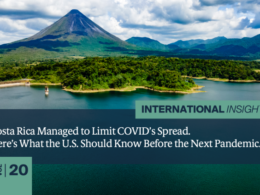the health
transformation
knowledge portal
Joaquim Cardoso MSc
Founder and Chief Researcher, Editor & Strategist
March 13, 2024
What is the message?
COVID-19 vaccination is associated with a reduced risk of post-COVID-19 cardiac and thromboembolic complications.
This study, conducted across multiple countries, found that vaccination was linked to decreased risks of heart failure (HF), venous thromboembolism (VTE), and arterial thrombosis/thromboembolism (ATE) within various time windows after SARS-CoV-2 infection.
The findings suggest that COVID-19 vaccination not only reduces the severity of acute COVID-19 outcomes but also provides protection against long-term cardiovascular complications.

This study was published by BMJ and written by Núria Mercadé-Besora, Xintong Li, Raivo Kolde, Nhung TH Trinh, Maria T Sanchez-Santos, Wai Yi Man, Elena Roel, Carlen Reyes, Antonella Delmestri, Hedvig M E Nordeng, Anneli Uusküla, Talita Duarte-Salles, Clara Prats, Daniel Prieto-Alhambra, Annika M Jödicke, and Martí Català.
Abstract
Objective
To study the association between COVID-19 vaccination and the risk of post-COVID-19 cardiac and thromboembolic complications.
Methods
We conducted a staggered cohort study based on national vaccination campaigns using electronic health records from the UK, Spain and Estonia. Vaccine rollout was grouped into four stages with predefined enrolment periods. Each stage included all individuals eligible for vaccination, with no previous SARS-CoV-2 infection or COVID-19 vaccine at the start date. Vaccination status was used as a time-varying exposure. Outcomes included heart failure (HF), venous thromboembolism (VTE) and arterial thrombosis/thromboembolism (ATE) recorded in four time windows after SARS-CoV-2 infection: 0–30, 31–90, 91–180 and 181–365 days. Propensity score overlap weighting and empirical calibration were used to minimise observed and unobserved confounding, respectively.
Fine-Gray models estimated subdistribution hazard ratios (sHR). Random effect meta-analyses were conducted across staggered cohorts and databases.
Results
The study included 10.17 million vaccinated and 10.39 million unvaccinated people. Vaccination was associated with reduced risks of acute (30-day) and post-acute COVID-19 VTE, ATE and HF: for example, meta-analytic sHR of 0.22 (95% CI 0.17 to 0.29), 0.53 (0.44 to 0.63) and 0.45 (0.38 to 0.53), respectively, for 0–30 days after SARS-CoV-2 infection, while in the 91–180 days sHR were 0.53 (0.40 to 0.70), 0.72 (0.58 to 0.88) and 0.61 (0.51 to 0.73), respectively.
Conclusions
COVID-19 vaccination reduced the risk of post-COVID-19 cardiac and thromboembolic outcomes. These effects were more pronounced for acute COVID-19 outcomes, consistent with known reductions in disease severity following breakthrough versus unvaccinated SARS-CoV-2 infection.
To read the original publication, click here.











